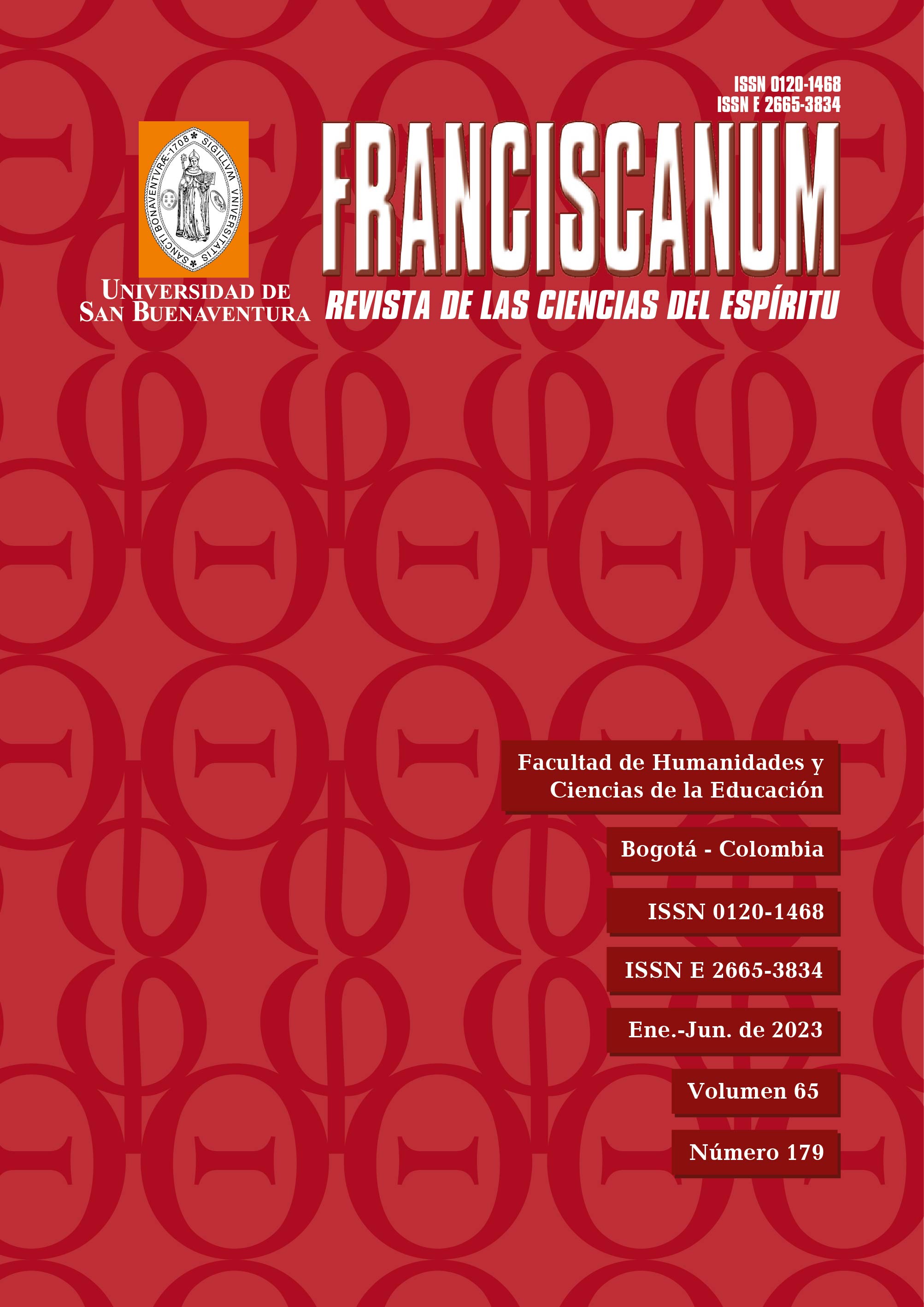This journal provides immediate open access to its content, based on the principle that giving the public free access to research helps a greater global exchange of knowledge.
Therefore, the Creative Commons 4.0 Attribution Attribution - Equal Share (by-sa) License is accepted: The commercial use of the work and the possible derived works is permitted, the distribution of which must be done with a license equal to that regulates the original work.
http://creativecommons.org/licenses/by-sa/4.0/
Along these same lines and in line with the Open Access policy, it is clarified that the authors maintain their rights to articles, without restrictions and, in the same way, they maintain their publication rights, without restrictions. They are only asked to reference the number of the Franciscanum magazine where the article initially appeared.
Abstract
The richness of a human dimension such as freedom deserves the commitment to take care of it, and our way of attending to this task tests the value that we confer on our own being. Ignoring this responsibility translates into an experience of being run over, which ends up enlisting them all in an endless cycle of hostility. Albert Camus offers us a look that allows us to recognize the merit of taking care of our free being, without attributing to our freedom an absolute character, under which the intention of obtaining a benefit over others is hidden. Therefore our freedom is realized to the extent that it provides us with a good that is not the monopoly of anyone, on the contrary, it benefits each one as we all share it.
References
Camus, Albert. El Hombre Rebelde. Buenos Aires: Losada,1957.
Camus, Albert. Crónicas argelinas (1939-1958). Madrid: Alianza Editorial, 2014.
Camus, Albert. El revés y el derecho. Discurso de Suecia. Madrid: Alianza Editorial, 2014.
Espinosa, Luciano. «Para ver entre las sombras: la mirada de Albert Camus», en Isegoría. Revista de Filosofía Moral y Política, n.° 47, (2012): 633-653. Consultado el 29 de octubre del 2021. http://isegoria.revistas.csic.es/index.php/isegoria/article/view/800/800.
Foucault, Michel. Microfísica del poder. Madrid: Las Ediciones de la Piqueta, 1979.
Foucault, Michel. Nacimiento de la biopolítica. Buenos Aires: Fondo de Cultura Económica de Argentina, 2007.
Frieyro, Martin. «Unidad y totalidad en Albert Camus», Scientia Helmantica. Revista Internacional de Filosofía, n.° 3, (2014): 117-129. Consultado el 29 de octubre de 2021 http://revistascientiahelmantica.usal.es/wp-content/uploads/2012/11/10.-Unidad-y-totalidad-en-Albert-Camus.pdf.
Garcés, Marina. Un mundo común. Barcelona: Ediciones Bellaterra, 2013.
Kierkegaard, Sören. El Concepto de la Angustia. Madrid: Alianza, 2007.
Kierkegaard, Sören. Post Scriptum no científico y definitivo de Migajas Filosóficas. Salamanca: Sígueme, 2010.
Rawls, Jhon. Teoría de la Justicia. Ciudad de México: Fondo de Cultura Económica, 2015.
Herrera, Alberto. «Sentir, reflexionar y testimoniar. Una aproximación a la postura ontológica en Albert Camus». Scientia Helmantica. Revista internacional de Filosofía, n.° 3 (2014): 155-175. Disponible en:
Sartre, Jean-Paul. El existencialismo es un humanismo. Ciudad de México: Ediciones Quinto Sol, 1985.



















